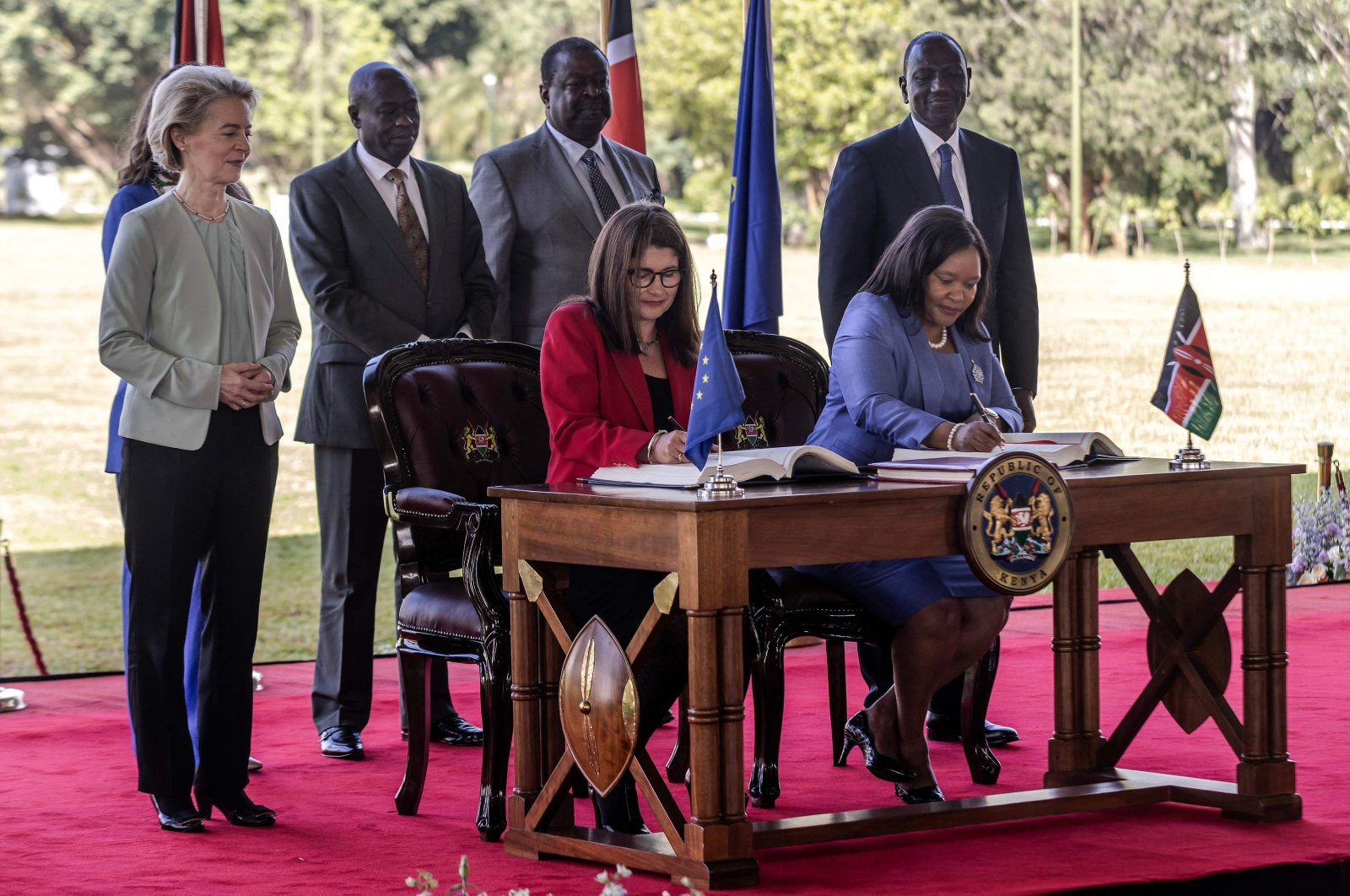
Kenya and the European Union on Monday signed a long-negotiated trade agreement to increase the flow of goods between the two markets, as Brussels pursues stronger economic ties with Africa.
The Economic Partnership Agreement will give Kenya duty-free and quota-free access to the EU, its biggest export market, while European goods will receive progressive tariff reductions.
Both sides had initiated a draft deal in June after seven months of negotiations. The deal was approved by the European Union Council last week. It will now be presented to the parliaments of both sides for ratification before it comes into force.
The agreement is the first broad trade deal between the EU and an African nation since 2016 and follows a spending spree by China on lavish infrastructure projects across the continent.
"Although today represents a moment of monumental promise, it is also the beginning of a historic partnership for historic transformation," Kenyan President William Ruto said at a ceremony attended by European Commission chief Ursula von der Leyen in Kenya's capital Nairobi.
"The core of this arrangement is to put real money into the pockets of ordinary people," said Ruto.
EU chief von der Leyen said the partnership was a "win-win situation on both sides" and called on other East African nations to join the pact, which came after years of negotiations that concluded in June.
"We are deepening trade ties and building up our economic resilience," she said.
"We are opening a new chapter in our very strong relationship and now our effort should be focused on implementation," von der Leyen added.
'New dawn'
Both the Kenyan and the European parliaments must ratify the deal before it comes into force.
"Today's agreement heralds a new dawn where Kenyan goods gain immediate duty- and quota-free access to the European market," Rebecca Miano, Kenya's trade minister, said before signing the agreement.
"Over time, European goods will also gain preferential access to the Kenyan market."
The European Union said that the deal was "the most ambitious economic partnership" it had with a developing country.
It includes commitments to sustainable development in areas such as labor rights and environmental protection, the EU said in a statement.
"A dedicated chapter has been included on economic and development cooperation, aimed at enhancing the competitiveness of the Kenyan economy," the EU said.
The 27-nation bloc accounts for more than 20% of Kenya's overall exports, according to government data, mainly agricultural products, including vegetables, fruits and the country's famous tea and coffee.
Total two-way trade between the markets hit 3.3 billion euros ($3.6 billion) in 2022, up 27% since 2018, according to EU figures.
'Door wide-open'
The EU has taken steps to counter China's Belt and Road program, announcing in February it would increase investments in Kenya by hundreds of millions of dollars through its own Global Gateway initiative.
The Kenya deal is the culmination of trade talks between the EU and the regional East African Community (EAC) that started roughly a decade ago.
The East African economic powerhouse signed and ratified an initial trade agreement with the EU in 2016 alongside the then six-member nation EAC but it fell through after some countries failed to greenlight the pact, with Kenya eventually pursuing its own deal.
The EAC has since expanded to eight member nations, who will all be welcome to join the new deal, Ruto said.
"This agreement that we are signing today leaves the door open, and I say, wide-open, for our EAC partners to join," he noted.
While the other EAC members are classified as least developed countries, meaning their exports could continue to get access without the deal, Kenya is middle-income and therefore had to seek a stand-alone arrangement.
"We encourage the other Eastern African countries to join," von der Leyen said.
